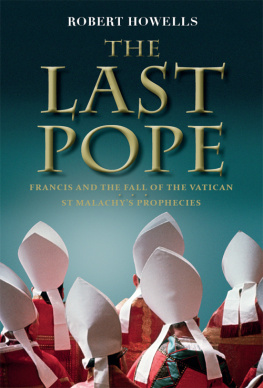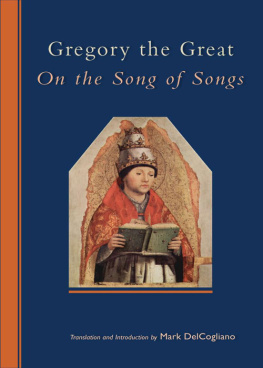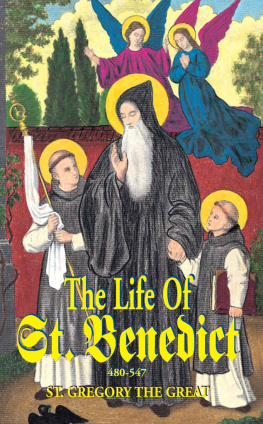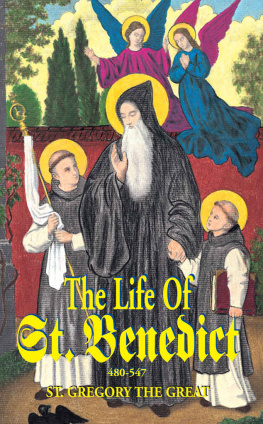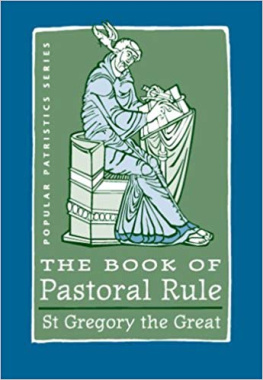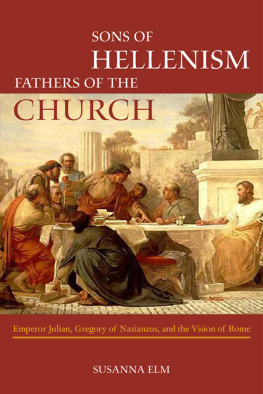Routledge Revivals
Consul of God
Gregory the Great, whose reign spanned the years between 590 and 604 A.D., was one of the most remarkable figures of the early medieval Papacy. Aristocrat, administrator, teacher and scholar, he ascended the throne of St Peter at a time of acute crisis for the Roman Church. Consul of God, first published in 1980, revises the traditional picture of Pope Gregory. It examines how he organised the central administration of the Papacy and his unremitting war on heresy and schism. Gregory also pioneered a new pastoral tradition in learning, promoted monasticism, and trained the episcopate.
Jeffrey Richards demonstrates that Gregory was both a conservative and a pioneer, and just as his reign looked forward to the medieval world it also looked back to a vanishing world of imperial unity. He was thus the last representative of those Roman senators whose fortitude and energy he emulated, earning the epitaph Consul of God.
Consul of God
The Life and Times of Gregory the Great
Jeffrey Richards
First published in 1980
by Routledge & Kegan Paul Ltd
This edition first published in 2014 by Routledge
2 Park Square, Milton Park, Abingdon, Oxon, OX14 4RN
and by Routledge
711 Third Avenue, New York, NY 10017
Routledge is an imprint of the Taylor & Francis Group, an informa business
1980 Jeffrey RIchards
The right of Jeffrey Richards to be identified as author of this work has been asserted by him in accordance with sections 77 and 78 of the Copyright, Designs and Patents Act 1988.
All rights reserved. No part of this book may be reprinted or reproduced or utilised in any form or by any electronic, mechanical, or other means, now known or hereafter invented, including photocopying and recording, or in any information storage or retrieval system, without permission in writing from the publishers.
Publishers Note
The publisher has gone to great lengths to ensure the quality of this reprint but points out that some imperfections in the original copies may be apparent.
Disclaimer
The publisher has made every effort to trace copyright holders and welcomes correspondence from those they have been unable to contact.
A Library of Congress record exists under LC control number: 79042757
ISBN 13: 978-1-138-77756-9 (hbk)
ISBN 13: 978-1-315-77252-3 (ebk)
Consul of God
The Life and Times of Gregory the Great
Jeffrey Richards
First published in 1980
by Routledge & Kegan Paul Ltd,
39 Store Street, London WC1E 7DD,
9 Park Street, Boston, Mass. 02108, USA, and
Broadway House, Newtown Road,
Henley-on-Thames, Oxon RG9 1EN
Set in 10 on 13 pt Palatino
by Input Typesetting Ltd, London
and printed in Great Britain by
Redwood Burn Ltd,
Trowbridge & Esher
Jeffrey Richards 1980
No part of this book may be reproduced in
any form without permission from the
publisher, except for the quotation of brief
passages in criticism
British Library Cataloguing in Publication Data
Richards, Jeffrey
Consul of God.
1. Gregory I, Pope
2. Popes Biography
I. Title
262.130924 BX1076 79-42757
ISBN 0 7100 0346 3
For Colin Tyson, Mike Harris, Joe Bettey, who taught me my first history
Abide with me; fast falls the eventide;
The Darkness deepens; Lord, with me abide;
When other helpers fail, and comforts flee,
Help of the helpless, O abide with me
Swift to its close ebbs out lifes little day;
Earths joys grow dim, its glories pass away;
Change and decay in all around I see,
O Thou, who changest not, abide with me
Henry Francis Lyte
Contents
Illustrations
Between pages 150 and 151
I am indebted to the following friends and colleagues for advice, assistance and suggestions: the late Professor A. H. M. Jones, Professor R. A. Markus, Dr E. R. Hardy, Dr G. J. P. ODaly, Dr P. D. King, Mr S. A. C. Lamley, Miss L. Parkinson, Miss S. Hall, Mr L. Cheles, Mr J. Thompson, Dr J. A. Moorhead, Dr D. C. A. Shotter, Miss W. Kenyon, Mr G. A. Inkster and Mrs M. Jackson. I would also like to thank the staffs of the Cambridge University Library, the Lancaster University Library, the Birmingham Reference Library, the London Library, the Institute of Historical Research, and the British Museum Reading Room for their unfailing courtesy and helpfulness. All opinions and errors are of course my own.
The quotation on is from Recessional by Rudyard Kipling and is reprinted by permission of the National Trust of Great Britain.
Gregory the Great was one of the most remarkable figures of the early medieval world. Aristocrat, administrator, teacher and scholar, he ascended the throne of St Peter as Pope Gregory I at a time of acute crisis for the Roman church and for Italian society. The invasion of the Lombards had fragmented the imperial province of Italy and posed a very real threat to the existence of the Roman church. Despite ill-health and overwork, Gregory took on the burdens of the papacy with all the fortitude and energy of the old Roman senators whose last representative he was, a fact recognized by his epitaph, which called him The Consul of God.
In a very real sense his reign (590604) marks a watershed in the shadowy period during which the ancient world became the medieval world. Gregory himself fascinatingly embodied all the contradictions and implications of that watershed. A devoted adherent of the Eastern Roman Empire and a tireless supporter of imperial efforts to maintain and extend their frontiers, he nevertheless considerably advanced the power and prestige of the papacy both in Rome itself and in the West in general, thus anticipating the time when the papacy came to inherit the mantle of the old Roman Empire.
His achievements were prodigious. He reorganized and paid minute attention to both the central administration and the estate administration of the papacy. He drew up a detailed code of practice for and supervised the elections of Italian bishops. He sent out the missions which converted the English, and waged unremitting war on heresy and schism. He popularized a new Western pastoral tradition in learning to replace the complex theological tradition of the East. His writings were immensely influential in both East and West. The first monk to attain the papal throne, he devoted his life and much of his writing to forwarding the cause of monasticism. In a very real sense, then, Gregory was both Roman and Christian, both conservative and pioneer, and just as he looked forward to a medieval world of monastic orders, emergent Western European states, and a monarchical papacy, he also looked back to the vanishing world of imperial order, discipline and unity, in which Roman church and Roman Empire were one and undivided.
There has not been a biography of Gregory the Great in English since 1912, and F. H. Duddens magisterial two-volume biography, published in 1905, still remains the standard work on his pontificate. The breadth of Duddens scholarship and the clarity of his vision remain undimmed by the passage of time, and there are substantial parts of his work which it is still impossible to improve on. But there has been a considerable amount of research on various aspects of Gregorys reign since 1905, and it is now perhaps time for a fresh appraisal, which can take account of the new insights.


